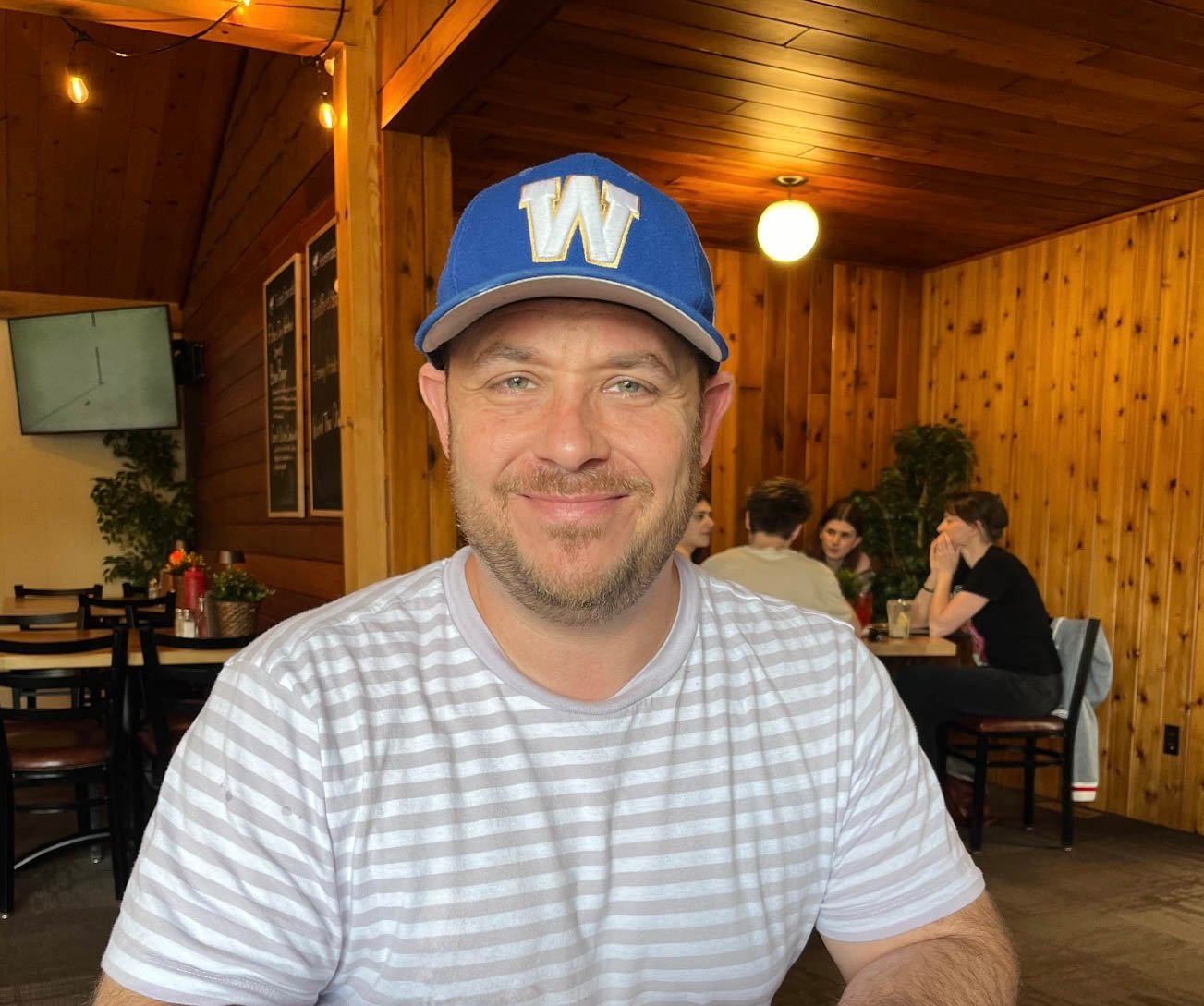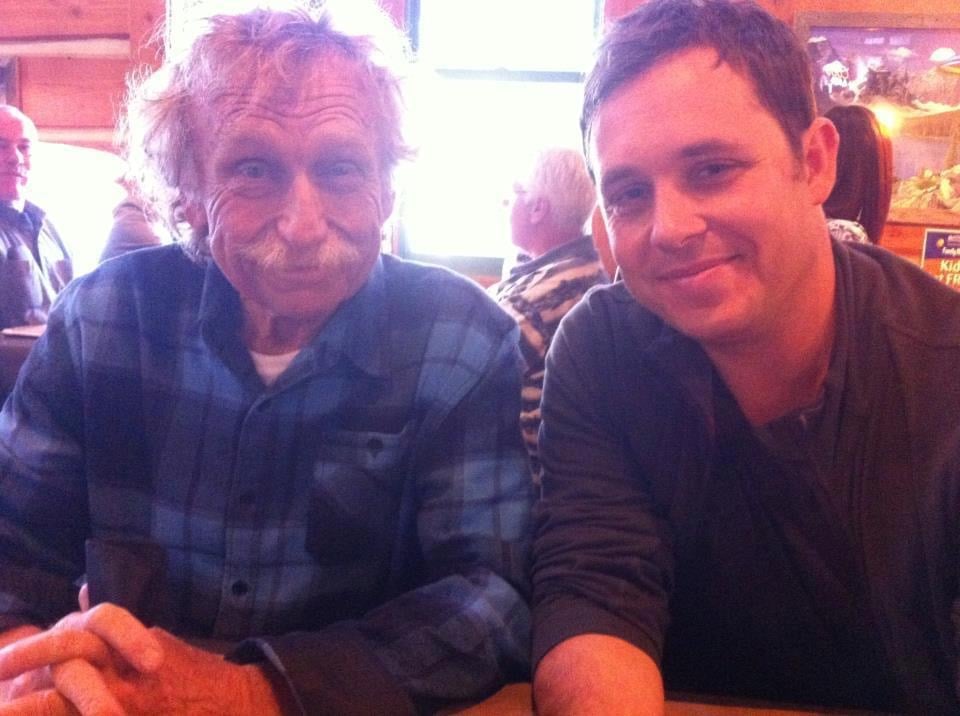“I couldn’t make decisions, couldn’t sleep.”

Zach Schnitzer was diagnosed with ADHD in the summer of 2022.
Instrumental to Zach Schnitzer’s mental health recovery has been the ongoing psychiatric care he has received from HSC since he was first admitted in 2022. “The continuity was a gamechanger,” says Schnitzer, who has been an HSC psychiatry inpatient twice in recent years.
“I’ve always had a familial predisposition to anxiety and depression,” he explains. After his job changed significantly to something he felt ill-suited for, plus the stress of a second child, family, and COVID, “I couldn’t cope with the extra demands, I fell apart. I was overwhelmed, anxious, having suicidal thoughts. I couldn’t make decisions, couldn’t sleep.”

Zach Schnitzer (right) with his father.
In June 2022, Schnitzer was admitted to HSC under the care of Dr. Cesar Rona, a psychiatrist he still sees today as an outpatient. “He diagnosed me with ADHD pretty much on the spot,” says Schnitzer, who was already taking antidepressants, which had likely outlived their efficacy. The HSC psychiatry team did a comprehensive review of his medications, prescribing a new antidepressant, an ADHD stimulant, and sleep medication. He says that process felt collaborative. “I couldn’t think straight and had a lot of anxiety,” so they included Schnitzer’s wife in appointments. “They always explained things, solicited our opinion. That was really helpful.”
He spent two weeks at HSC, where he slowly stabilized, meeting Dr. Rona for daily therapy. “He really got me,” says Schnitzer, who made good use of the gym on the ward and met with other mental health professionals available for counselling. “There was always someone I could talk to,” he says.
Once discharged, Schnitzer continued seeing Dr. Rona as an outpatient and gradually returned to work. But before long, feelings of overwhelm returned. He’d been finding the ADHD stimulant too agitating, was having sleep problems, and had become anxious and depressed again.
In March 2023 he was readmitted, this time under the care of Dr. Jessica Enns, who emphasized that this second mental health crisis was a clarion call. “A mental health crisis is like having a stroke,” says Schnitzer. “You need time to heal, recuperate. This isn’t a quick fix.”
As discharge approached again, he eased home gradually. “You go for a couple hours, then four hours, six, and you’re always able to contact the ward if you’re struggling at home. They include your family in a safety plan; that was effective for me to reintegrate into the community,” he says.
Equally important: he returned to Dr. Rona’s care as an outpatient. “He’s been phenomenal. To have that outpatient treatment continue has been so great.”
After experiencing such excellence in care at HSC, Schnitzer has been motivated to support the HSC Foundation, and made his first gift to the 2025 Fund-A-Need campaign for new Emergency Department equipment.
“There are so many people in Manitoba struggling with mental health, and new approaches that need funding for research and development,” he says. “Mental health is complicated; HSC wants to be on the cutting edge of treatment. It’s incredibly important to give back. I wouldn’t be here today if it wasn’t for the care I received.”
-by Leslie Malkin
To support enhancements in mental health care at HSC, please visit our donation page and look for the Advancing Mental Health Care Fund in the dropdown menu. The fund is used for advancing the care for adult mental health patients at HSC by funding staff education and training, program development and implementation, and purchasing surgical and diagnostic technology and equipment in mental health care. Thank you for your support!
